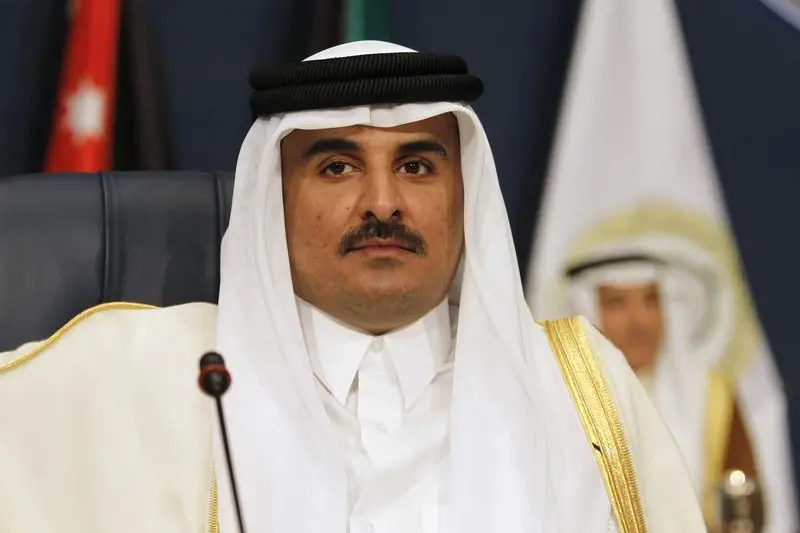PHOTO
DOHA, Nov 1 (Reuters) - Qatar will shift some state-run health and education services to the private sector as it seeks to ease the burden on its finances, the emir said on Tuesday, as he outlined his economic agenda for the next five years in an era of low oil and gas prices.
The world's biggest liquefied natural gas exporter is coping better than most of its neighbours with shrunken hydrocarbon revenues, but like them it is seeking to cut the financial burden on the government, which this year expects to run its first budget deficit in 15 years.
"Although we set out viewing these (health and education) fields of basic human development as the responsibility of the state, we have concluded it is necessary they benefit from an interaction between the private and public sectors," Sheikh Tamim bin Hamad al-Thani said in his address to Qatar's Advisory Council.
He did not elaborate on how the private sector would become involved, but last December, the cabinet decided to rely on private companies to provide health insurance. Saudi Arabia has also said it wants to transfer some of the burden of providing health care and education services.
The government is putting the finishing touches to a new law that will help it award projects to the private sector, Sheikh Tamim said. "It is difficult to provide funds for all the projects that we want to execute as per the strategic plan," he said.
Qatar provides free health care and education to its roughly 300,000 citizens, many of whom are on generous government salaries and whose incomes are among the highest in the world.
But Sheikh Tamim said Qatar needed to cut wasteful state subsidies and transition from being a nation of "simple social welfare policies" to "a state of action" in the face of low energy prices, which he said nobody had expected.
"There are challenges that we should tackle, which are related to...the culture of consumption. Wealth alone is not sufficient," he said. The government would focus its infrastructure spending on major projects and those related to Qatar's hosting of the 2022 soccer World Cup, the emir said.
(Reporting by Tom Finn; Editing by Andrew Torchia and Raissa Kasolowsky) ((Tom.Finn@thomsonreuters.com;))
The world's biggest liquefied natural gas exporter is coping better than most of its neighbours with shrunken hydrocarbon revenues, but like them it is seeking to cut the financial burden on the government, which this year expects to run its first budget deficit in 15 years.
"Although we set out viewing these (health and education) fields of basic human development as the responsibility of the state, we have concluded it is necessary they benefit from an interaction between the private and public sectors," Sheikh Tamim bin Hamad al-Thani said in his address to Qatar's Advisory Council.
He did not elaborate on how the private sector would become involved, but last December, the cabinet decided to rely on private companies to provide health insurance. Saudi Arabia has also said it wants to transfer some of the burden of providing health care and education services.
The government is putting the finishing touches to a new law that will help it award projects to the private sector, Sheikh Tamim said. "It is difficult to provide funds for all the projects that we want to execute as per the strategic plan," he said.
Qatar provides free health care and education to its roughly 300,000 citizens, many of whom are on generous government salaries and whose incomes are among the highest in the world.
But Sheikh Tamim said Qatar needed to cut wasteful state subsidies and transition from being a nation of "simple social welfare policies" to "a state of action" in the face of low energy prices, which he said nobody had expected.
"There are challenges that we should tackle, which are related to...the culture of consumption. Wealth alone is not sufficient," he said. The government would focus its infrastructure spending on major projects and those related to Qatar's hosting of the 2022 soccer World Cup, the emir said.
(Reporting by Tom Finn; Editing by Andrew Torchia and Raissa Kasolowsky) ((Tom.Finn@thomsonreuters.com;))





















